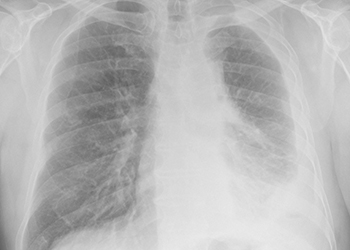
The issue
Mesothelioma is a rare form of cancer caused by exposure to asbestos. The production and use of asbestos in Canada peaked in the mid-1970s and then declined sharply, but the number of mesothelioma cases in BC continues to increase. Up to 95% of cases are caused by workplace exposure, with an onset of symptoms 30 to 40 years after exposure.
A recent study by the Partnership for Work, Health and Safety at UBC's School of Population and Public Health, used linked data to learn how many mesothelioma cases in BC are compensated, and the factors that influence compensation.The study was funded by WorkSafeBC.
Data sources linked
- Cancer incidence files (BC Cancer Agency)
- WorkSafeBC injury files and firm level data
What did we learn?
- Less than 50% of mesothelioma cases present for compensation from WorkSafeBC; these health care costs and services are absorbed by the Ministry of Health
- People less likely to present for compensation are women, young and retired workers, and workers with non pleura mesothelioma.
- Compensation rates vary by region, suggesting that public knowledge in large industrial settings with known asbestos exposure influences awareness of compensation benefits
"By linking population health data, we learned that less than half of individuals with mesothelioma in BC seek workers’ compensation benefits for their disease. This suggests that workers, and their physicians, may not be aware of the relationship between exposure to asbestos at work and illness that develops years later. We are using the results of the study to raise awareness of compensation benefits for mesothelioma patients. Ultimately, this will help ensure that individuals receive the health benefits and resources they need across our social safety net."
Mieke Koehoorn, Assistant Professor, School of Population and Public Health, University of British Columbia
Making a difference
- Based on the findings, the BCCA and WorkSafeBC began working together to increase awareness of compensation benefits among mesothelioma cases; this included a letter to physicians of patients to encourage them to seek compensation.
- Increased compensation rates for work-related mesothelioma by WorkSafeBC will result in significant cost savings to the BC Ministry of Health.
